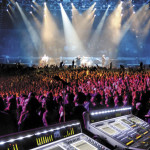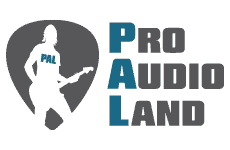
When performing live with a band or as an individual musician, it is critical to ensure that the live sound is exceptional. This aspect of your performance will make or break your concert, regardless of other factors like the venue, playlist or your physical appeal. Therefore, you should personally monitor the sound set-up early to prevent unnecessary mishaps and limit disappointment to your fans. Here are some effective ways to help you improve your live sound.
How To Improve Your Live Sound
Know Your Sound person
As a musician, you are unlikely to be doing the stage set up and other related tasks by yourself. There will almost always be a sound person allocated to provide assistance and ensure that the acoustical components for the show are in working order. Moreover, they will monitor and control the live action through the soundboard. Consequently, they are critical in determining the success of your show. Therefore, make certain that you are on good terms with the sound person in case you need assistance.
Understand Stage Set-Up
The set-up of the show components on the stage is an important consideration. If the sound items such as the microphone, speakers, and the amplifiers are not well-placed in relation to each other, you will notice feedback. This screech is one of the worst things that can happen to a musician in terms of sound. In addition, poor placement will result in sound imbalances which will be noticeable. If you are playing the amp at your concert, ensure that it is close and at head level. When using the microphone, ensure that the component is facing away from the speakers. This will help you avoid that annoying feedback loop.
Check Out the Crowd Sound Set-Up
Some venues have speakers already set up around the space for optimal enjoyment for the listeners. Regrettably, musicians are unlikely to get great live show spaces for every gig. Therefore, you should make it a habit to check out the placement and performance of the speakers for the crowd. Otherwise, you will not know what the people will be hearing because you will be relying on the stage monitors. Ensure that the speakers are not close to the ground; this will cause sound quality imbalance. Basically, anyone close to these will be overwhelmed by the sound while others at the back will hardly hear the music. Listen from the crowd area and make adjustments as necessary.
Improve Your Microphone Technique
When singing, it is crucial to use the microphone to improve the quality of musical sound. If you use this component poorly, you will sound unprofessional and the concertgoers will not receive quality music. The most important thing that you should know about using a microphone is the optimal distance between your mouth and the microphone. You are likely to use the standard types in the market, so an inch or two should suffice. You can also bring your own microphone in case the type provided is not ideal. The sound person will be able to manage your voice quality efficiently when your voice is loud enough.
Capitalize on Basic Sound Settings
During the live sound check, you should make sure that the basic acoustic settings are utilized for maximum advantage. In general, this means that the volume should be adjusted such that the vocals and instruments are well-audible but not overwhelming to listeners. In addition, the equalizer settings should be well managed. As implied, the EQ is essential in balancing the live sound of different musical components in order to create a great fit. Poor settings will lead to an imbalance between the instruments and vocals, creating acoustic chaos.
Experiment with Effects
Sound effects are useful in enhancing the acoustics during a live show, so you should not only focus on basic settings. Experiment with different effects in relation to your song list in order to see what works and what will cause chaos. Simple effects like echo and delay or instrument effects like vibrato, pitch modulation and even tremolo can go a long way into making your band edgier.
Finally, you should strive to understand live sound more as you grow in music and performance. The knowledge can be critical if you have the misfortune of working with an unqualified sound crew or you have to direct the set-up alone.
Your Turn to Sound Off!
What are some other tips you of that can improve your live sound?
Let us know in the comment section below!

